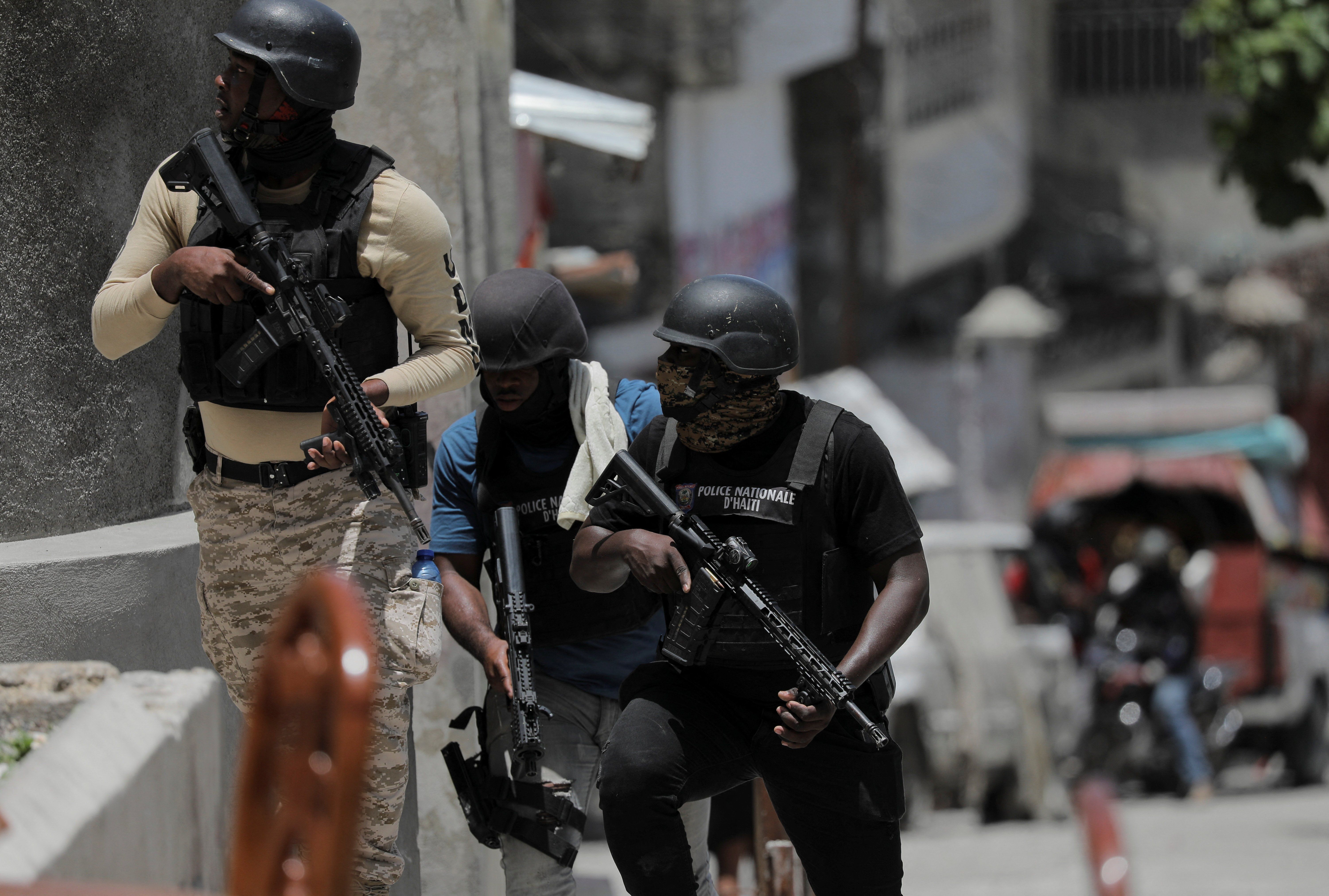The UN Security Council on Monday authorized a Kenyan-led mission to Haiti that aims to help the nation’s beleaguered police forces re-establish control of the Caribbean country.
Ever since President Jovenel Moïse was assassinated in 2021, Haiti has been plunged into anarchy, with gangs controlling the vast majority of Port-au-Prince, the capital. More than 150,000 people have been displaced by gang violence, and thousands have been killed. The police, serving a caretaker government that lacks popular legitimacy, are underfunded and overwhelmed.
Earlier this year, the Haitian government and the UN called for international help. The US has supported the idea, but a checkered history of American interventions in Haiti has made the White House reluctant to get involved directly.
That’s where Kenya comes in. The resolution – which the US supported, and Russia and China abstained from – empowers Nairobi to dispatch 1,000 police officers to Haiti, alongside about a dozen other countries that have pledged to join the mission. It also offers training and logistical support to the countries that pledge to intervene. For more on why Kenya is stepping up to the plate, check out this explainer.
But taming Haiti’s gangs is a tall order, and not everyone is thrilled about an international mission like this. Recent UN interventions in Haiti have resulted in a deadly cholera outbreak and allegations that peacekeepers sexually exploited Haitian women and then abandoned hundreds of children who were born as a result.
Two Haitian-American groups are already lobbying against the Kenyan plan, telling the Biden administration that the intervention will only “exacerbate [Haiti’s] current political crisis to a catastrophic one.”
